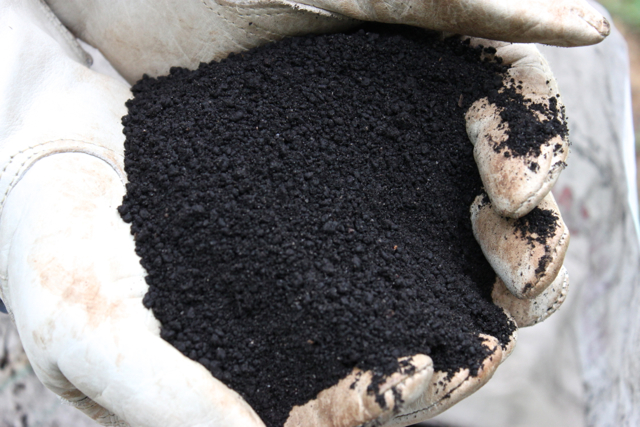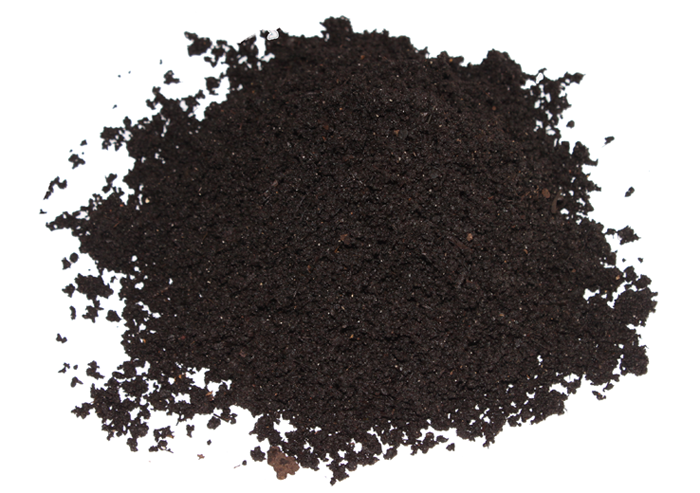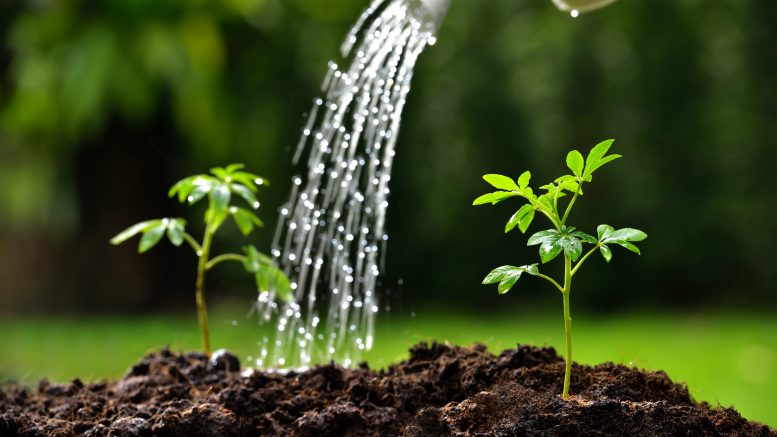
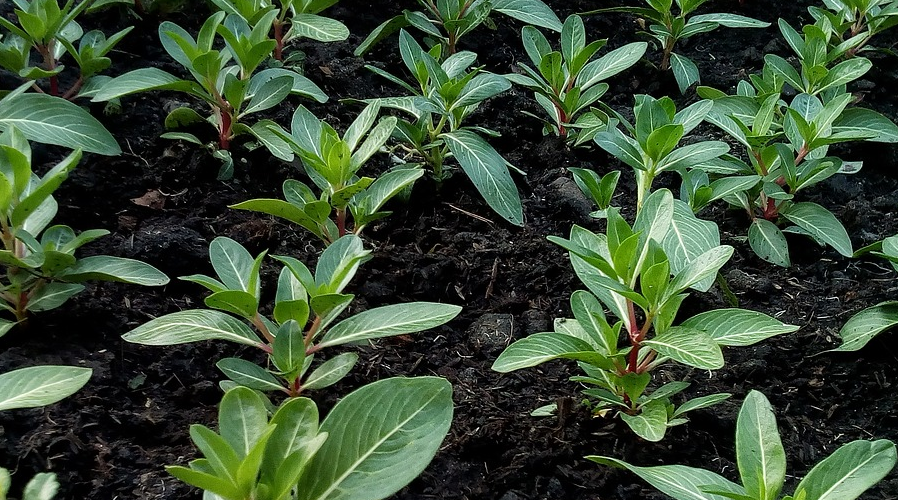
Vermicompost
High molecular organic compound. Contains in a WELL BALANCED AND EASY-DIGESTIBLE FORM ALL PLANTS SUBSTANCE REQUIRED FOR NUTRITION, as well as a large number of macro and micro elements directly absorbed by plants, vitamins, natural antibiotics, amino acids and beneficial microflora.
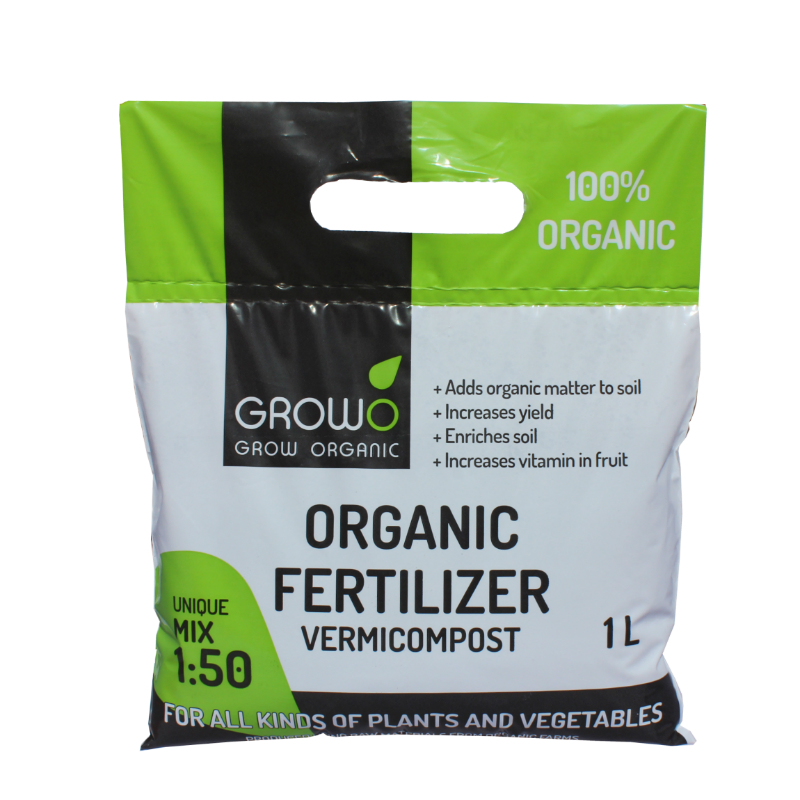
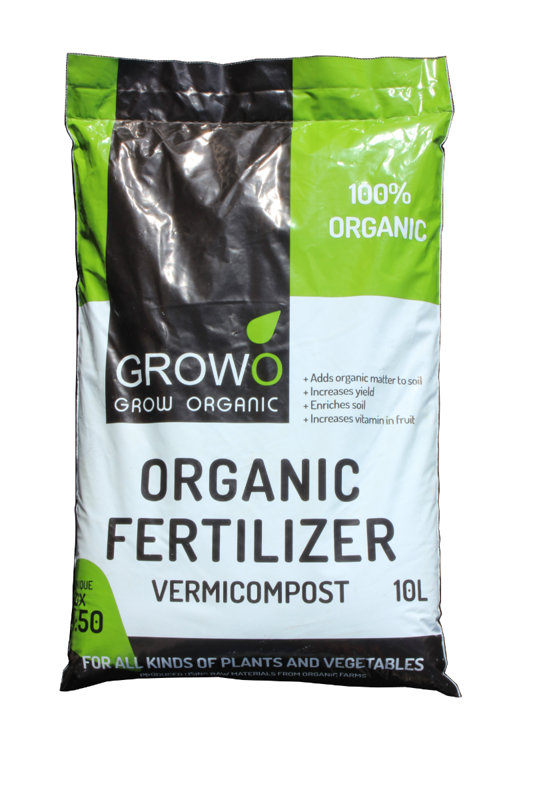
VITAMIN C CONTENT MG/100G
Amount of vitamin C in fruits and vegetables using a variety of fertilizers, mg/100g
| Crops | Vermicompost | Manure + NPK |
| Apples | 32 | 5 |
| Tomatoes | 54 | 25 |
| Potatoes | 48 | 15 |
| Pepper sweet | 220 | 150 |
| Beans | 43 | 10 |
| Carrot | 22 | 4 |
| Pears | 28 | 4 |
| Strawberry | 90 | 52 |
NITRATE CONTENT (MG / KG)
Vermicompost using for growing different crops, you will have a biologically pure product. Crops grown using a vermicompost contain a minimum amount of nitrates.
| Crops | Chemical fertilizers | Manure | Vermicompost |
| Cucumber | 273 | 70 | 5 |
| Tomatoes | 83 | 37 | 8 |
| Cabbage | 280 | 140 | 128 |
| Onion | 120 | 60 | 36 |
| Pepper | 75 | 38 | 10 |
| Carrot | 480 | 111 | 37 |
VermiComPOST COMPOSITION
- The content of dry organic matter 40-60%
- pH level 6 - 8
- Organic matter 20 - 70%
- Humidity 30 - 60%
- Humus 10–12%
- Nitrogen 0.9 - 3%
- Phosphorus 0.5 - 2.5%
- Potassium 0.5 - 2.5%
A complex conglomerate of vermicompost is best divided into a number of groups and fractions according to a relatively similar type of structure, but differing from each other in molecular weight and chemical composition. Humins, humic acids, fulvic acids and hymatomelanic acids. Of particular value to vermicomposts are humic acids, the content of which varies from 5.6 to 17.6% per dry matter.
VERMICOMPOST CHARACTERISTICS
- Vermicompost contains, in a well-balanced and EASILY DIGESTIBLE form by plants, all the substances necessary for nutrition, macro- and microelements, enzymes, hormones, vitamins, antibiotics and live soil (rhizosphere) microflora.
- From the resulting microflora, the plant consumes everything necessary for food when it is required.
- Vermicompost is an integral part of the soil, stimulates the course of natural processes in it, gently regulates both the plant nutrition and the condition of the soil. Introduction of vermicompost ensures ecological purity of products, heals the soil, stimulates biochemical processes, increases the number of beneficial microorganisms in the soil, improves its agrochemical and physical properties and accelerates self-purification.
- One gram of vermicompost accumulates about 7 grams of moisture, and gradually releases it for plant nutrition. The ability of the soil to retain water increases, reduces moisture fluctuations, while avoiding too much accumulation of water. That is why it is used as an excellent ameliorant and soil conditioner.
- Reduces the removal of organic matter from the soil. Slowly dissolves in water.
- Using vermicompost prevents compaction of the soil, maintains its looseness and air permeability, reduces soil erosion.
- Significantly relieves the stress of plants, especially seedlings when planting in the field, enhances survival rate, accelerates seed germination, affects the growth and development of plants, thereby contributing to obtaining early products of high biological quality, suitable for long-term storage.
- Adding vermicompost when growing seedlings can help preserve the crop even after the plant has been planted in the ground, that is, in the absence of vermicompost.
- It helps seedlings to settle down faster and significantly improves the soil structure at the roots. It can be used throughout the summer season for feeding fields, beds, fruit trees and bushes, lawns. Year-round when growing indoor plants.
- Increases yield by 20 - 50%, increasing the nutritional value and safety of fruits and vegetables. Reduces the ripening time to 2 weeks.
- The amount of vitamin C, sugar and other biologically active substances increases in fruits and vegetables.
- Reduces the content of nitrates in agricultural products. Humic acids dissolve and hold heavy metals in the soil and do not allow them to enter the plants.
- The unique communities of microorganisms useful for the soil and plants in vermicompost supplant pathogenic microflora, stabilize microelements, humates, and beneficial microorganisms. Healing the soil improves plant resistance to diseases, eliminates many common plant diseases.
- Vermicompost and water extracts from it are able to suppress or suppress various herbal diseases.
- Vermicompost does not contain weed seeds, parasite eggs and pests.
- Increases the buffer capacity of the soil, which enhances their ability to withstand chemical stresses, does not create excessive concentrations of salts in the soil, which occurs when making high doses of mineral fertilizers.
- It is combined with all types of agro chemicals, enhances their action, which does not require additional costs for use without disrupting the process.
- Biologically active in soil up to 5 years. Storage is unlimited.
- Under natural conditions, the formation of a 10 cm layer of fertile soil with a humus content of up to 5% occurs within 100 years. Degraded soil contains less than 0.5% humus - practically nothing grows on it.
- Vermicompost costs less than mineral fertilizers, considering that it has been working in the soil for several years.
